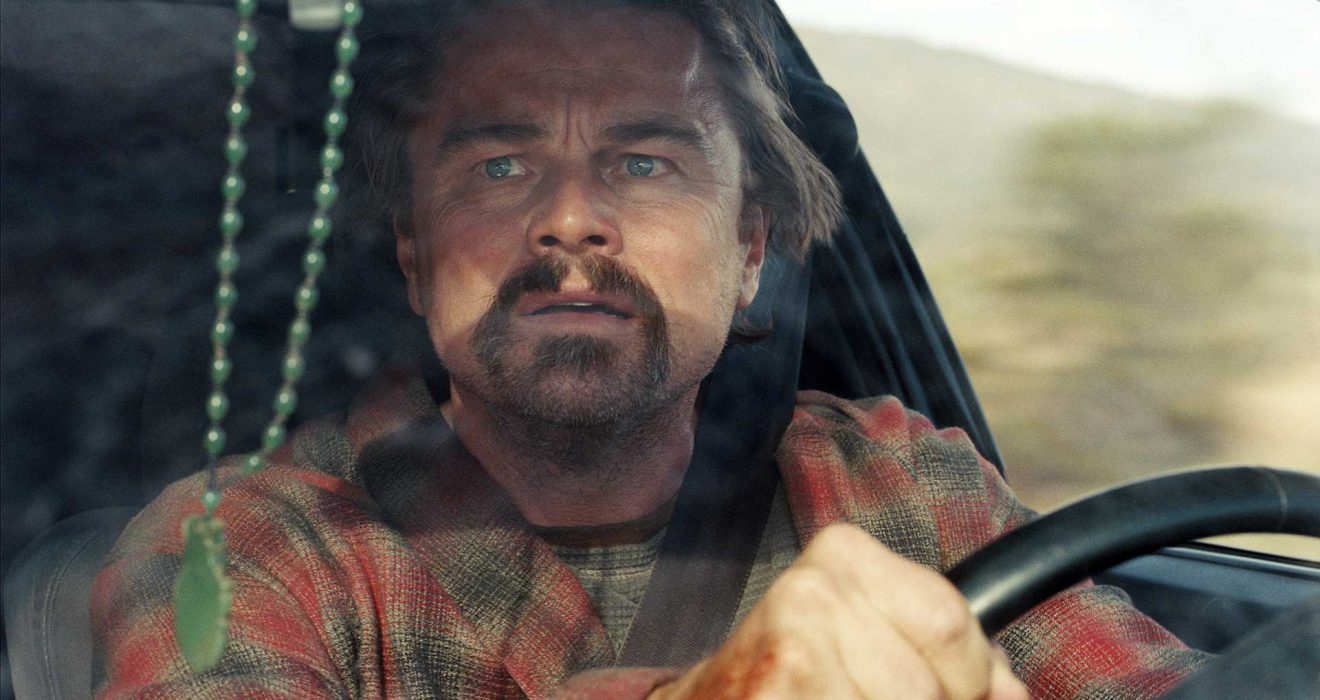“One Battle After Another” Review
Director: Paul Thomas Anderson Screenwriter: Paul Thomas Anderson Cast: Leonardo DiCaprio, Sean Penn, Benicio del Toro, Regina Hall, Teyana Taylor, Chase Infiniti Distributor: Warner Bros. Pictures Running Time: 162 min. MPAA: R
The fight for our rights will be one of endurance, a notion that coats Paul Thomas Anderson’s One Battle After Another with equal hope and hilarity. This type of film can stress the need for revolution in its favoring of political rebellion, but still finds a laugh in the older generation of left-wing activists who have grown weary enough that the most radical thing they’ve recently done was smoke weed while watching The Battle of Algiers (which happens in this film with a self-aware level of absurdity). Still, you’ve got to fight on, and that enduring spirit makes this film such a grand encapsulation of our era, more for the vibes of the political winds than the exact trajectory of the cultural shift.
The film starts with a violent and sexual bang as revolutionaries Perfidia Beverly Hills (Teyana Taylor) and Bob Ferguson (Leonardo DiCaprio) commit themselves to liberating immigration camps and blowing up government buildings. There’s no slowing down to explain the predictable origins of how these two were radicalized enough to go this far. They’re tired of voting and waiting for the world to correct its wrongs, finding passionate moments of sex between explosive acts of bombings (sometimes before the bomb even goes off), and holding officials at gunpoint. It’s an act so sexy that the spiteful Colonel Steven J. Lockjaw (Sean Penn) is almost willing to look the other way, so long as he can have his way with Beverly Hills.
The revolution turns dark when Beverly Hills is captured, forcing Bob and his daughter, Willa, to go into hiding. Skip ahead many years to where Willa (Chase Infiniti) is now a teenager, and Bob is a burnt-out revolutionary whose lowered head has made it harder for him to keep up the fight. Although residing in a more docile sanctuary city, his paranoia about the government catching up with him is not unfounded. As Lockjaw takes a renewed interest in Bob’s life amid a ridiculously racist prospect, it’s up to Bob to find a way to protect himself and his daughter, even though his mind has become so rattled with booze and weed that he can’t remember the old code words or rendezvous points. The film ultimately becomes a chase fueled by fear, violence, and a passion to change the world.
There’s a constant momentum throughout Anderson’s winding mixture of action, comedy, and political fury, and it’s incredible how the offbeat aspect never slows the film down a bit. Scenes of car chases and shootouts are presented with such vigor and clever shots to make the danger an effective dose of cinematic carnage. Scenes of absurd mockery mesh perfectly into the plot, as with Lockjaw’s membership in a secret organization of fascists with a title so hilarious I dare not reveal it here. It all works because it feels so reflective of our times. There are right-wing organizations with dorky names (The Proud Boys, Groypers, The Boogaloo Movement), protests in the streets, filthy government figures, and a weariness that grows with the persistence of fascism.
The most hopeful aspect of the film is Sergio St. Carlos (Benicio del Toro), a low-key revolutionary houser for immigrants and local sensei for Willa, who offers support for Bob when he needs it most. Carlos has become so used to the dangers of government forces that he has plans that are so foolproof that he can have a beer between his escape plans without a hint of fear in his voice. He’s grown so used to the world being a chaotic mess that he’s found the right notes to dance along with madness, finding a zen groove amid violence in the streets and ICE knocking down his doors right before he exits. The seriousness of the situation comes through more personally with the hard-nosed Deandra (Regina Hall) taking on the trickier task of ensuring Willa’s safety and even divulging the truth behind her parents. Deandra presents a more grounded aspect of the consequences of fighting a battle where everything becomes a target, just in case the film gets too giddy with her sequences framed around a collective of rebellious nuns.
One Battle After Another is the most perfectly poignant and political picture for our time while still being a thrilling cinematic adventure. Paul Thomas Anderson has done something far greater than merely pulling the words from the inspiration Thomas Pynchon’s Viceland, encapsulating more of the spirit than the superlatives to make a movie reflecting the retro. For not being bound by adaptation adherence or real-life targets, Anderson’s astute production will only age like a fine wine, embodying the essentials of revolution’s progression rather than its placement. More importantly, the film isn’t afraid to be political as it floors the accelerator to make a high-speed turn into the Leftist lane. After seeing so many toothless political pictures, it’s refreshing that Anderson’s tapping of Pynchon has teeth and knows how to bite down hard, unafraid to punch home the messaging that the fight against authoritarianism is worth it. Films like this make you feel alive and want to keep kicking against those who punch down.

